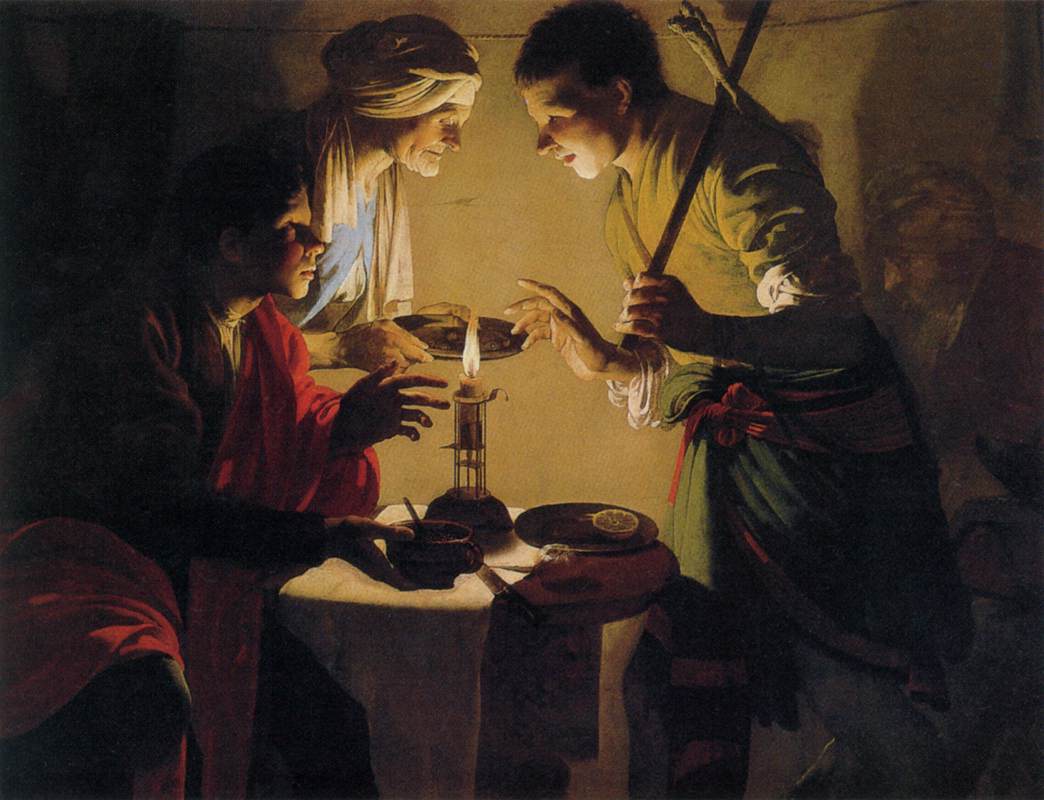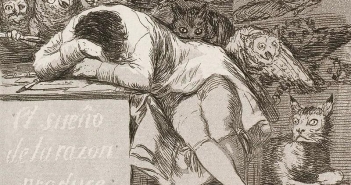In a quiet room, two men smoke hashish and discuss the inevitability of the Apocalypse. All the signs are apparent: unusual weather conditions, social unrest, unendurable suffering caused by poverty and war. Searching for a loophole, they weave theories of increasing complexity, involving Messiahs, the reversing of the Old Laws, and the triumph of the Feminine spirit. After a few more puffs, however, the older man’s ability to speak fails to keep pace with the increasing abstraction of his thoughts. He falls into a reverie, or perhaps merely sleep. Only he can tell which. The other man stays awake, watching his ideas play out in all their baroque intricacy and intensity, until he, too, is overcome by tiredness. The solution to the Apocalypse will have to wait for another day.
Welcome to eighteenth century Poland, as imagined in Olga Tokarczuk’s recently translated novel The Books of Jacob. A work of historical fiction, it straddles genres. On one hand, the book is the fruit of painstaking historical research, with Tokarczuk claiming to have worked seven years on the text. On the other, the novel’s ability to engage relies on the way it imaginatively enters its historical personages lives, and weaves compelling characters, relationships, and plots from the gaps in the historical record. The reader is told this in one clause of the book’s stylishly verbose title:
The Books of Jacob
Or
A Fantastic Journey Across Seven Borders, Five Languages, and Three Major Religions, Not Counting the Minor Sects.
Told by the Dead, Supplemented by the Author, Drawing from a Range of Books, and Aided by Imagination, the Which Being the Greatest Natural Gift of Any Person.
That the Wise Might Have It for a Record, That My Compatriots Reflect, Laypersons Gain Some Understanding, and Melancholy Souls Obtain Some Slight Enjoyment.
The novel was originally published in 2014, and has been considered Tokarczuk’s masterpiece. In 2019, she was awarded the 2018 Nobel Prize for Literature, and in November 2021, an English translation by Jennifer Croft was published by Fitzcarraldo. Croft had previously translated another of Tokarczuk’s books, Flights, for which they shared the winning of the Man Booker International Prize in 2018.
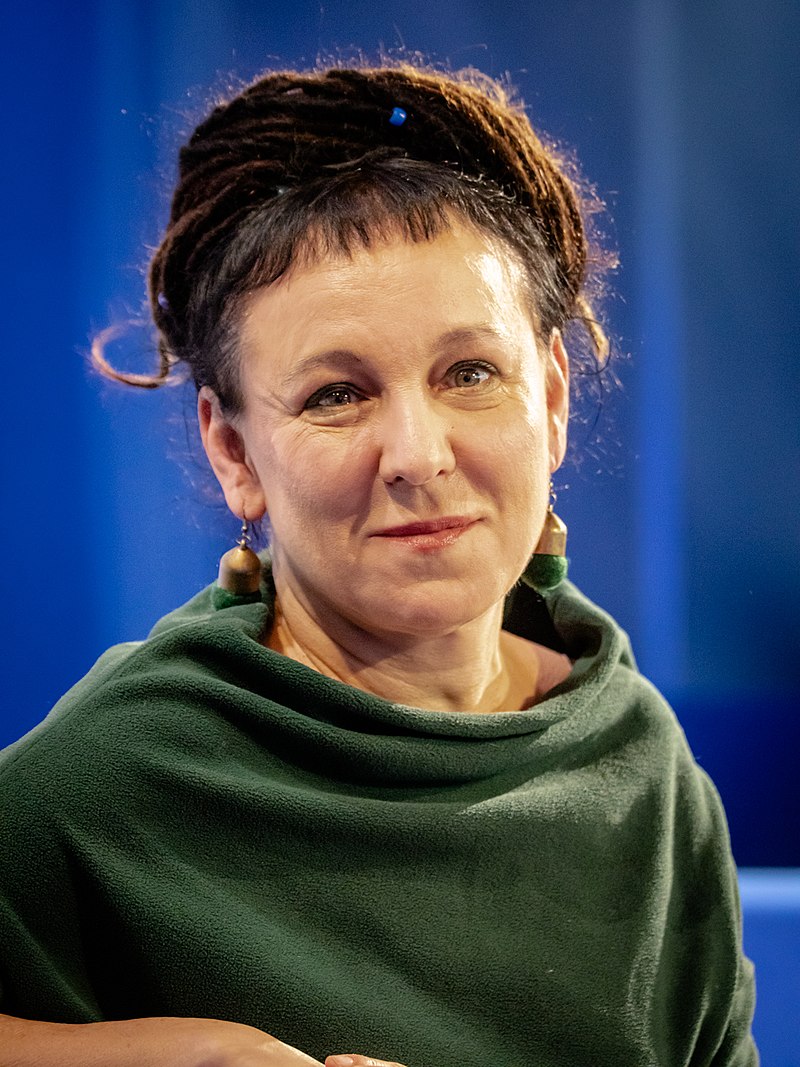
Olga Tokarczuk in 2019.
Summary
The book follows the emergence, peregrinations and eventual dissolution of a religious sect built around a charismatic leader by the name of Jacob Frank. The sect was composed mainly of Jews, mostly Polish in nationality, who broke from the mainstream Jewish community. They believed earnestly that the end was nigh, and Jacob Frank was the Messiah. Frank’s teachings consisted of homely expositions of esoteric Kabbalist theories, involving such things as a Trinity of four parts, and the notion that God created the world without being aware he was doing it.
Frank led his followers into new territory not just in the world of ideas, but also in respect of their place in European society. As Jews in Poland, they were barred from owning property, taking noble titles, and were perpetually subjected to suspicion and animosity, especially in times of social unrest caused by wars and famines. Frank convinced his followers that it was necessary for them to be baptised as Catholics. A barrowload of theological argumentation was provided to justify this move, and the group maintained many aspects of their culture even after their conversion, including unique clothing, refusal to eat pork, and a preference for marrying within the group. The cynical question can’t be dismissed: to what extent was the sect’s religion a front for a social movement?
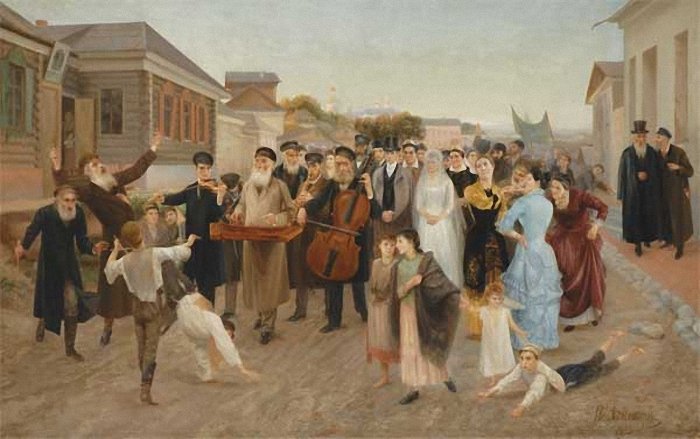
Jewish wedding with klezmer band in a shtetl in Russia, painting by Isaak Asknaziy, 1893.
Musings on Contemporary Applications
Many commentators on this novel have noted that it speaks directly to our time, but few have been more specific in saying how. Marcel Theroux’s excellent review for The Guardian, for example, ends without developing the tantalising suggestion that the book, “which is so demanding and yet has so much to say about the issues that rack our times, will be a landmark in the life of any reader with the appetite to tackle it.” In the rest of this article, I would like to step away from the act of reviewing this book, and instead reflect on parallels with our current time.
I propose three areas of comparison.
- The Nation State in Peril
- Popular Apocalyptic Sentiment
- Cults of Personality
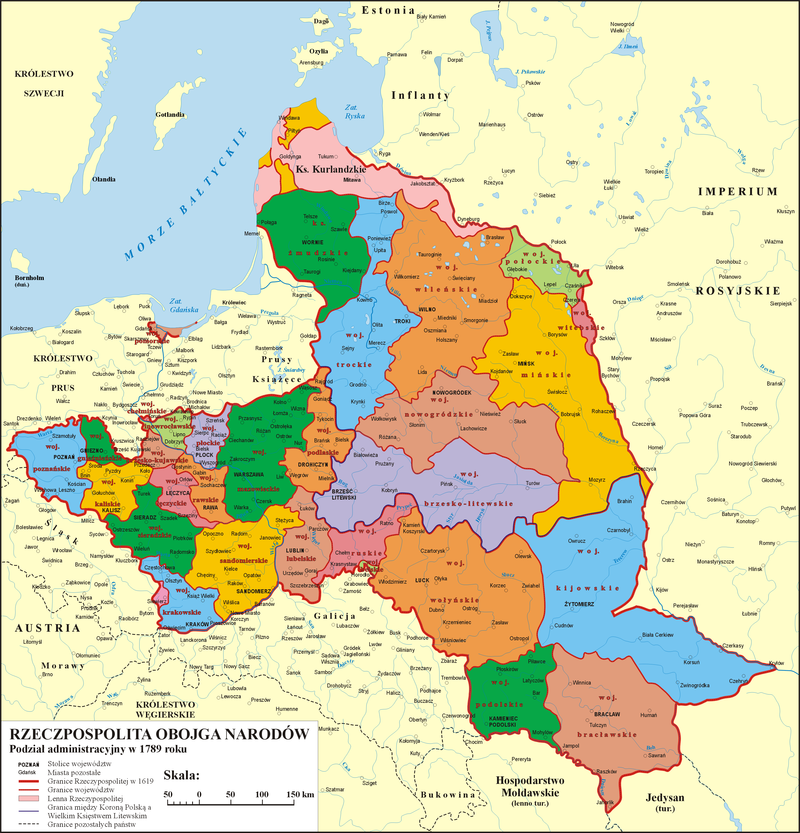
Administrative division of the Polish-Lithuanian Commonwealth in 1789.
The Nation State in Peril
The Poland depicted in this novel is not the Poland of today, either in its geographical delineations nor, in many aspects, its culture. But the idea of such a nation stretches back to the eighteenth century.
In general those claiming to represent any nation like for its subjects to be obedient, to document themselves clearly for the State’s convenience, and to stay in one place. For these reasons perhaps the Irish state has long struggled to accommodate the Irish Travelling Community.
This novel could be read as a meditation on the relationship between the nation and that which is ‘foreign’. After all, Jacob Frank’s last name is not a ‘real’ last name at all, but was a generic title applied to foreigners. Thus, Jacob Frank could be translated to ‘Jacob the Foreigner’. The group exists in a strange tension with Poland. Jacob doesn’t speak Polish, but still amasses a following in the country through his physical bearing, his charisma, and the compelling nature of his ideas in translation. Emerging from the Jewish community, and with theological ties to schools of thought widespread in the Middle East, the sect is both native and foreign at the same time. It comes from without, but gathers momentum because it speaks to a dissatisfaction within Polish society.
Over the course of the book, the group ‘settles’ into a mode of being comfortable for the state. They stop being nomadic, they get baptised into the dominant religion, and they change their Jewish names to Catholic Polish ones. Jacob Frank tells his followers, “Everyone who seeks salvation must do three things: change his place of residence, change his name, and change his deeds.”(p. 229). Rather than solidifying the order of the nation state, as this action appears to do on the surface, it actually undermines the concept of nation by highlighting the fluidity of such markers of identity as one’s name, place of residence, religion etc.
By definition, arising from the establishment of settled agriculture, a nation is opposed to nomadic forms of human culture. Nation states also tend to dislike groups with distinct languages or scripts. To be considered a good citizen, you should have one name, spelled one way, using no funny symbols, and you should never dare to change this.
The granting of land to the Frankists was not just to the sect’s interest, but was also greatly in that of the State’s. If the group held land, they would stop travelling around the country riling people up and gathering more converts. Moreover, it would be easier to keep an eye on them.
As a member of a dominant religion, you conformed publicly with the society at large. You had your job, your Polish name, and attended church. But in your own home, and in your smaller communal meetings, you discussed your true spiritual beliefs and worshipped in your own way.
The freedom to practice one’s religion privately, without persecution or suppression by the state, is one which was hard won over the large few centuries. But in Jacob’s time, it was a primary issue, connected to what it means to live as an individual on a day to day basis.
Reading the novel, I found my mind turning to the tension between private and public existence in our time. It seems to me that the division between public and private that may have existed in the eighteenth century is slowly being eroded in our own times. After all, surveillance is no longer something that happens in the street, but has now intruded into every facet of private life. Citizens keep voice-commanded devices in their bedrooms, their kitchens. We each carry around devices with camera that face both outwards to the world, and back at our faces, with microphones that record the words we speak. Our phones, without which modern life is difficult to manage (how will you get a job, stay in contact with friends, pay for your visits to the cafe?), have become an instrument of power that destroys the fragile barrier between public and private life. Without this barrier, will the possibility of quietly practicing non-dominant ways of life (religion, community, culture) be permitted for long?
In Catholic Poland of the eighteenth century, the Church and the state were intertwined. In Neoliberal Ireland of the twenty first century, the state is intwined with the interest of corporations.
But the corporations have an edge. It is to companies like Meta (formerly known as Facebook), Google and Amazon that the vast majority of surveillance capitalism belongs, not the state. Google knows where I go on a day to day basis, what I buy, what music I listen to and what blogs I read, much more intimately than the state does. What does it mean for a non-elected body to have such power in a nation? Is it comparable to the power the Church had over the kingdoms of Medieval Europe? If Google ordered it, would Ireland join a Crusade?

Viktor Vasnetsov (1848-1926), the Four Horsemen of the Apocalypse.
Popular Apocalyptic Sentiment
It was reasonable for Europeans to feel apocalyptic two hundred years ago. There was terrible wealth disparity, with peasants and kings living side by side, social unrest, culminating in the French Revolution and a succession of natural disasters, like the Lisbon earthquake.
It is fair to say that there is similar apocalyptic sentiment around today. Although the average standard of living is higher now than the average eighteenth century Polish peasant, the extent of wealth inequality has become absurd. In a globalised society sweat shop workers produce iPhones for the satisfaction of wealthy consumers who fantasise about building mansions on Mars, while the planet shudders under the weight of our cumulative impact.
Natural disasters will always happen, but it is interesting to note our increasingly panicked reactions. Words like hellish and apocalyptic are bandied about when we see forests burn, amidst an increasingly sense that we are to blame. If we contrast this with an event like the Lisbon Earthquake, the reaction it evoked for many was to question the Divine plan. How could God allow such awful things to happen to Europeans?
The Frankists believed that in the end times, the Messiah would come, and when this happened, all the old laws would be reversed and thrown away. It was this logic that allowed Frank’s followers to change their Jewish names, ignore all the rules for living laid out in the Talmud, and experiment with bizarre new (or, perhaps, archaic) modes of sexual behaviour. What changes in our culture will we see when a large enough percentage of the population truly accepts the possibility of apocalypse?
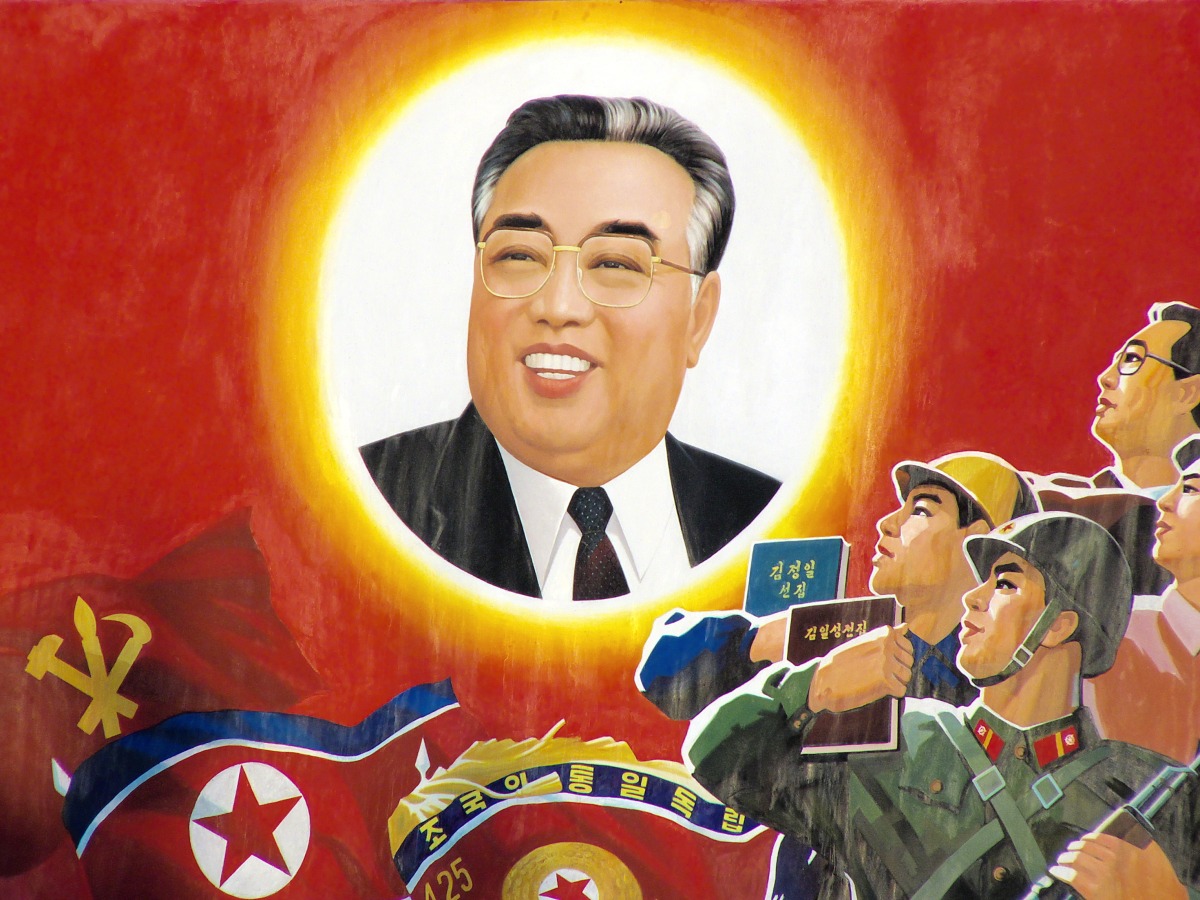
North Korean poster featuring Kim Il-Sung.
Cults of Personality
Jacob is not the most intelligent character in this book. At the same time, he often downplayed his intelligence, calling himself a ‘simpleton’. The intellectual backbone of the Frankists were a group of older characters, deeply versed in Jewish scripture and Kabbalah. In their nightly discussions, they would provide the raw material to Jacob, who would then draw from this wisdom in his actions and speeches to the rest of the followers.
What Jacob had was charisma, above all else. He was like a magnet, drawing people to him through an invisible force. Without Jacob, the group had no coherent identity: a group of Jews who had forsaken their birth names, the teachings of the Talmud, and their homelands. The teachings of the group, too, had no unity apart from Jacob. It was, in effect, a cult of personality.
There is an interesting passage near the end of the novel. In this scene, the stories of Jacob’s life are being recorded. Being old, and the revered head of a movement, the stories have become increasingly mythic in nature. But what strikes one observer is that the story of the Frankists as a group, and the story of Jacob’s individual life are intertwined.
…the Lord tells his tales, and he and Jakubowski write them down, until out of these stories Jacob’s life starts to emerge – a life that is simultaneously the life of this ‘us’. (p. 86)
Normally, we think of individualism and group-based living as being diametrically opposed. But here, they’re interdependent. But what does it mean for an individual to represent a group?
People are always more persuasive than ideas. And it’s interesting how a charismatic personality can stimulate interest in esoteric ideas among people who would never have dreamed of engaging with such ideas otherwise. Just look at how many young men are now reading Alexander Solzhenitsyn, Carl Jung, and Dostoyevsky because of the viral popularity of Jordan Peterson. Or how many hipsters are reading Hegel because they like Zizek.
This is not to be critical of reading Jung or Hegel, or to mock people for reading outside their comfort zone, but it is notable that they mostly read Jung in the context of Jordan Peterson, or Hegel in reference to Slavoj Zizek. And these personalised forays into philosophy or psychology come with ideological baggage.
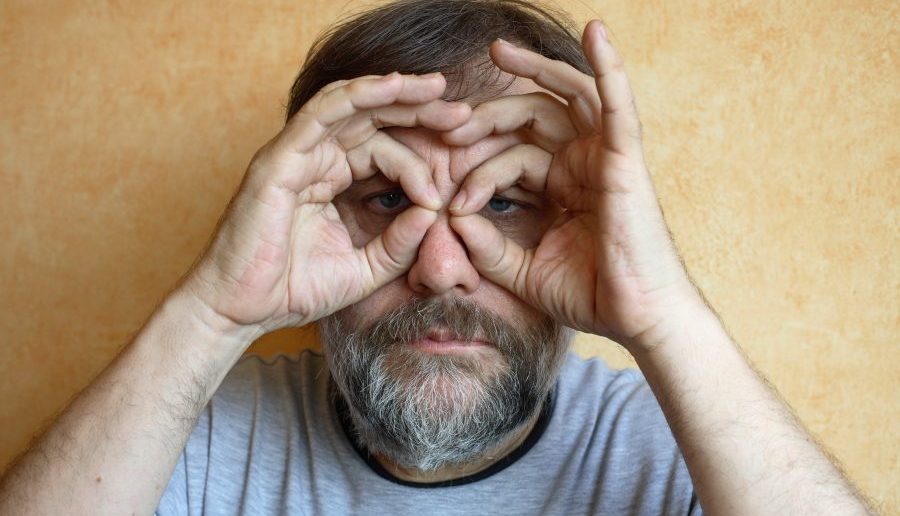
Slavoj Žižek, ©Basso CANNARSA Opale/Alamy Stock Photo
A Peterson fan is likely to read Jung to find proof of the mystical solidity of the division between the Masculine and Feminine spirit, or the impenetrable irrefutability of biological determinism. A fan of Zizek will read Hegel, and, in all likelihood, understand very little, but will at least be more impressed and willing to listen to Zizek the next time they hear him speak, because clearly he understands things they do not…
All this reference to authority has something medieval about it. In the Middle Ages, it was enough to say that Aquinas wrote something to take it for granted that it was true. There was a finite list of ‘authorities’ that you could quote with impunity. And it was considered appropriate to defer to such authorities than try to prove the truth of something by original argumentation.
The scientific method broke with this, throwing the baby out with the bathwater. No, it said, we can’t take any ‘obvious’, ‘common sense’ truth for granted. We can’t hold anything true on the grounds of ‘authority’, because we no longer trust these powerful institutions like the Church and the State to tell us what is true and what isn’t. Let’s give power to the people!
A philosopher like Habermas would argue that this striving for objectivity, atomised and isolated from the rest of human knowledge, is fruitless. Truth arises as part of a conversation.
In our own times, with information so freely available, but also requiring some conscious effort to sort the chaff from the grain, there has been an explosion of cults of personality. With its ability to present the human face in motion and voice in high definition, the internet, more so than even the radio (which had such a devastating role in boosting dictators in the twentieth century), allows for the easy transmission of charismatic personalities.
You could argue that this is the bookish side of the larger celebrity culture, but it’s worth paying attention to this phenomenon when you consider the extent to which popular discourse is driven by these popular thinkers, such as:
- Jordan Peterson
- Slavoj Zizek
- Sam Harris
- Ben Shapiro
- Christopher Hitchens
Note: Having a cult of personality isn’t necessarily a damning judgment on the individual in question. It just seems to be the way the internet works at present.
Note 2: Isn’t it interesting that all these people are male?
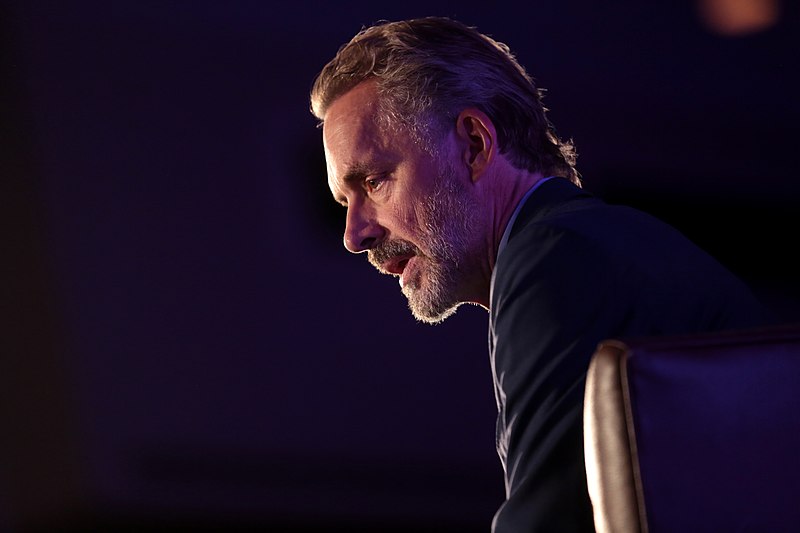
Jordan Peterson. Image by Gage Skidmore.
Many of these popular thinkers are not true intellectuals. They often speak in vague statements. They contradict themselves etc. But this may be part of the charm. In The Books of Jacob, Tokarczuk describes the effect Jacob has on crowds:
…he makes quite the ruckus, with his strange gestures and the odd things that come out of his mouth. He speaks so enigmatically that it’s hard to figure out what he means. That’s why people stay together for a long time after he leaves, trying to interpret for themselves and one another the words of this Frank, this foreigner. What did he say? In some sense, each can only understand it all as best as he can, in his own way. (pp. 639-638)
This doesn’t sound dissimilar from the comments section on a Jordan Peterson lecture.
These figures mostly appeal on the level of personality. Their fans don’t care if they are not the most intellectually sophisticated thinker in the academy. They’re engaged more on the level of watching somebody they like and admire, such as a friend, grapple with issues that they feel effect them. And of course, this being a cult of personality, they identify with these figures. Ben Shapiro is a knight, a hero, valiantly slaying the libs for ‘our’ sake. These figures gain support and popularity by virtue of being ‘on our side’. Even if they don’t identify with the group, they can win support by scoring argumentative points against one of the group’s enemies. Thus, Jordan Peterson was admired by many neofascists, despite his denouncement of that viewpoint, because he criticised the culture of ‘wokeness’ on so many occasions.
Perhaps these popular figures are tapping into the archetype of the prophet? A figure who speaks enigmatically but urgently, calling for us to change our ways before it’s too late. In a neoliberal system that seems impervious to innovation unless it is in order to exploit the planet and human beings more brutally; it’s thus understandable that there’s a thirst for a powerful voice of urgency among young people. This is what the movie Don’t Look Up primarily conveys: a sense of powerlessness, of not being heard when the apocalypse is so painstakingly obvious.
Lay It to Rest, Lad
In a room bothered by the noise of traffic, two men quietly smoke hashish. They speak of the imminent apocalypse. All the signs are there: natural disasters, odd weather conditions, vast wealth inequality, the strong preying on the weak. They weave intricate theories, drawing from the half-baked ideas of internet grifters. The sun sets, but the light of the screens stay on. Sleep will not come soon.
Featured Image: Hendrick ter Brugghen, Esau Selling His Birthright, c. 1627.

